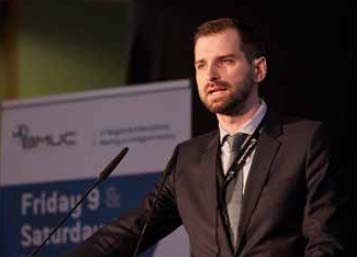BJMO - volume 12, issue 10, march 2018
M. Albersen MD, PhD, MD , PhD
It has become of yearly tradition of BMUC to put a tumor type in the spotlight that is often overlooked at (inter)national symposia. This year, Prof. Maarten Albersen gave an overview of the current treatment landscape of penile cancer.

BJMO - volume 12, issue 10, march 2018
Ronald de Wit; MD , PhD
The positive outcome of several randomized clinical trials evaluating immune checkpoint inhibitors in patients with metastatic bladder cancer dramatically changed the treatment paradigm in this setting. In his presentation, Prof. de Wit summarized the clinical data generated with PD-1/PD-L1 inhibitors in this setting, but he kicked off by summarizing the historical results obtained with chemotherapy in patients with metastatic urothelial cancer.

BJMO - volume 12, issue 10, march 2018
M. Kockx , MD , PhD
Immune checkpoint inhibition has rapidly changed the treatment paradigm of several cancer types, including non-small cell lung cancer (NSCLC), melanoma, urothelial cancer and renal cell carcinoma (RCC). Lots of research is currently focused on the search for biomarkers that can predict whether a patients will respond to immunotherapy or not. During his lecture at BMUC 2018, Dr. Mark Kockx, pathologist and founder of HistoGeneX shared his views on this matter.

BJMO - volume 7, issue 3, july 2013
S. Vandamme , I. Geboers MD, J. Vervliet MD, C. Molderez MD, E. Van den Heuvel MD, J. Gaens MD, P. Meijnders MD, PhD, MD , PhD , W. Tjalma MD, PhD, S. Altintas MD, PhD
We present the case of a 56-year old patient with primary squamous cell carcinoma of the breast. She underwent a radical mastectomy with adjuvant chemotherapy, consisting of carboplatinum and gemcitabine, and consecutive radiotherapy. Twenty-seven months after her treatment she is still disease-free. Hormonal therapy was initiated for a small tubular carcinoma and is continuing. As yet, there is uncertainty about the correct management of this rare and aggressive type of cancer, but there is growing evidence that adjuvant platinum-based regimens, especially cisplatinum, might be effective in inducing long-term complete remission.
(BELG J MED ONCOL 2013;7(3):89–92)
Read more